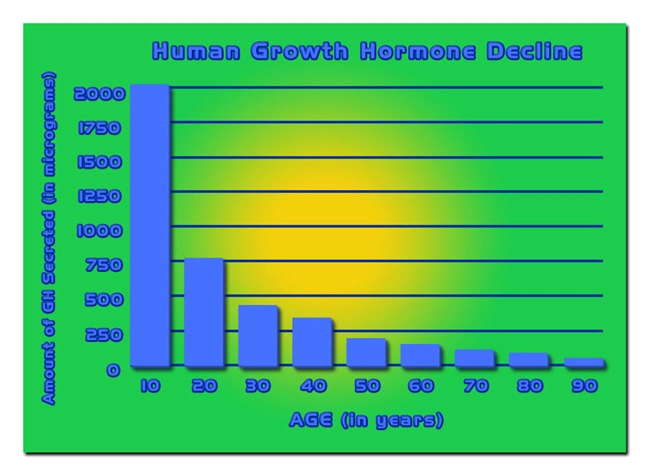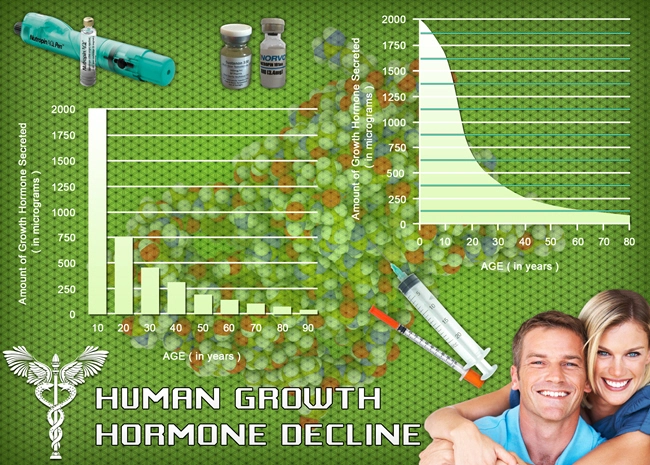
Introduction to Natesto
Natesto is a testosterone nasal gel approved by the FDA for the treatment of male hypogonadism, a condition characterized by low testosterone levels. As with any hormonal therapy, it is crucial for patients to understand the potential effects on various bodily systems, including the liver. This article aims to provide American men using Natesto with essential information on monitoring their liver function to ensure overall health and well-being.
Understanding Liver Function
The liver plays a pivotal role in metabolizing hormones, including testosterone. It is responsible for breaking down and eliminating excess hormones from the body. Monitoring liver function is essential for men on testosterone therapy to prevent potential complications such as liver stress or damage.
Natesto and Liver Health: What the Research Says
Current research on Natesto indicates that it has a favorable safety profile with respect to liver function. Unlike oral testosterone formulations, which are known to have a higher risk of liver toxicity, Natesto's nasal administration bypasses the first-pass metabolism in the liver. This method of delivery is believed to reduce the strain on the liver, making it a safer option for testosterone replacement therapy.
A study published in the *Journal of Urology* found that men using Natesto did not show significant changes in liver enzyme levels, which are markers of liver health. However, continuous monitoring is recommended to ensure that the liver remains unaffected over the long term.
Monitoring Liver Function: What American Men Should Know
Men using Natesto should have their liver function tested regularly. This typically involves a blood test that measures levels of liver enzymes such as alanine aminotransferase (ALT) and aspartate aminotransferase (AST). Elevated levels of these enzymes can indicate liver stress or damage.
It is recommended that men on testosterone therapy have their liver function checked every 3 to 6 months initially, and then annually if results remain stable. Your healthcare provider will interpret these results and advise on any necessary adjustments to your treatment plan.
Lifestyle Factors and Liver Health
In addition to regular monitoring, American men can take proactive steps to support their liver health while using Natesto. Maintaining a healthy diet, limiting alcohol consumption, and avoiding hepatotoxic substances such as certain medications and supplements can all contribute to liver well-being.
Regular exercise is also beneficial, as it helps maintain a healthy weight and reduces the risk of fatty liver disease, which can be exacerbated by hormonal imbalances.
When to Seek Medical Attention
While Natesto is generally well-tolerated, it is important for men to be vigilant about any signs of liver dysfunction. Symptoms such as jaundice (yellowing of the skin or eyes), abdominal pain, or unexplained fatigue should prompt immediate medical consultation. Early detection and intervention can prevent more serious liver-related issues.
Conclusion: Prioritizing Liver Health with Natesto
For American men using Natesto, understanding and monitoring liver function is a critical aspect of managing testosterone therapy. By staying informed about the potential effects of Natesto on the liver and adhering to regular monitoring, men can safely enjoy the benefits of testosterone replacement therapy. Always consult with a healthcare provider for personalized advice and to address any concerns about liver health while using Natesto.
In summary, while Natesto offers a safer alternative to oral testosterone therapies, vigilance and proactive health management are key to ensuring that your liver remains healthy throughout your treatment journey.
Contact Us Today For A Free Consultation
Dear Patient,
Once you have completing the above contact form, for security purposes and confirmation, please confirm your information by calling us.
Please call now: 1-800-380-5339.
Welcoming You To Our Clinic, Professor Tom Henderson.

- Natesto: Revolutionizing Fatigue Management in American Men with Hypogonadism [Last Updated On: March 17th, 2025] [Originally Added On: March 17th, 2025]
- Natesto: Revolutionizing Testosterone Therapy with Nasal Gel for American Men [Last Updated On: March 17th, 2025] [Originally Added On: March 17th, 2025]
- Natesto: Enhancing Cognitive Function in American Males via Intranasal Testosterone Delivery [Last Updated On: March 18th, 2025] [Originally Added On: March 18th, 2025]
- Comparing Natesto Nasal Gel to Traditional Testosterone Gels for TRT in American Men [Last Updated On: March 18th, 2025] [Originally Added On: March 18th, 2025]
- Natesto: Effective Testosterone Therapy for Aging American Men [Last Updated On: March 19th, 2025] [Originally Added On: March 19th, 2025]
- Natesto: A Nasal Gel Revolutionizing Testosterone Therapy for American Men [Last Updated On: March 20th, 2025] [Originally Added On: March 20th, 2025]
- Natesto: Nasal Testosterone Gel's Impact on Skin Health for American Men [Last Updated On: March 21st, 2025] [Originally Added On: March 21st, 2025]
- Natesto Testosterone Gel Enhances Sleep Quality in American Men: Clinical Insights [Last Updated On: March 21st, 2025] [Originally Added On: March 21st, 2025]
- Natesto: A Novel Nasal Gel for Managing Chronic Fatigue in American Men [Last Updated On: March 21st, 2025] [Originally Added On: March 21st, 2025]
- Natesto: Enhancing Weight Management in Men with Testosterone Deficiency [Last Updated On: March 22nd, 2025] [Originally Added On: March 22nd, 2025]
- Natesto: Enhancing Athletic Performance in American Male Athletes [Last Updated On: March 22nd, 2025] [Originally Added On: March 22nd, 2025]
- Natesto: FDA-Approved Nasal Gel for Hypogonadism Treatment and Monitoring Guidelines [Last Updated On: March 22nd, 2025] [Originally Added On: March 22nd, 2025]
- Natesto: Testosterone Therapy's Impact on Cardiovascular Health in American Males [Last Updated On: March 22nd, 2025] [Originally Added On: March 22nd, 2025]
- Natesto: A Game-Changing Nasal Gel for Testosterone Replacement in American Males [Last Updated On: March 23rd, 2025] [Originally Added On: March 23rd, 2025]
- Natesto: Tailoring Dosage for Optimal Testosterone Therapy in American Males [Last Updated On: March 23rd, 2025] [Originally Added On: March 23rd, 2025]
- Natesto: Enhancing Men's Health with Nasal Testosterone Therapy [Last Updated On: March 23rd, 2025] [Originally Added On: March 23rd, 2025]
- Natesto: Enhancing Testosterone with Diet and Exercise for American Men [Last Updated On: March 23rd, 2025] [Originally Added On: March 23rd, 2025]
- Natesto: Nasal Testosterone Gel for Hypogonadism - Benefits, Risks, and Considerations [Last Updated On: March 23rd, 2025] [Originally Added On: March 23rd, 2025]
- Natesto: Safe Testosterone Therapy for Hypogonadism and Prostate Health in American Men [Last Updated On: March 24th, 2025] [Originally Added On: March 24th, 2025]
- Natesto: Revolutionizing Testosterone Therapy with Nasal Gel for Hypogonadism in Men [Last Updated On: March 24th, 2025] [Originally Added On: March 24th, 2025]
- Natesto: Enhancing Mental Clarity and Cognitive Function in American Men [Last Updated On: March 24th, 2025] [Originally Added On: March 24th, 2025]
- Natesto: Revolutionary Nasal Gel for Testosterone Replacement in American Men [Last Updated On: March 24th, 2025] [Originally Added On: March 24th, 2025]
- Natesto: Enhancing Testosterone and Gut Health in American Males [Last Updated On: March 24th, 2025] [Originally Added On: March 24th, 2025]
- Natesto: Enhancing Male Libido and Sexual Health with Nasal Testosterone Therapy [Last Updated On: March 25th, 2025] [Originally Added On: March 25th, 2025]
- Natesto: Innovative Nasal Gel for Testosterone Deficiency in American Men [Last Updated On: March 25th, 2025] [Originally Added On: March 25th, 2025]
- Natesto: Innovative Nasal Gel for Testosterone Replacement in American Men [Last Updated On: March 25th, 2025] [Originally Added On: March 25th, 2025]
- Natesto: Enhancing Male Confidence and Self-Esteem Through Testosterone Therapy [Last Updated On: March 25th, 2025] [Originally Added On: March 25th, 2025]
- Natesto: Testosterone Therapy and Its Impact on Male Pattern Baldness [Last Updated On: March 25th, 2025] [Originally Added On: March 25th, 2025]
- Natesto: Innovative Nasal Gel for Testosterone Replacement in American Men [Last Updated On: March 25th, 2025] [Originally Added On: March 25th, 2025]
- Natesto: Enhancing Immune Health in American Men Through Testosterone Therapy [Last Updated On: March 25th, 2025] [Originally Added On: March 25th, 2025]
- Natesto: Effective Intranasal Testosterone Therapy for Hypogonadism in American Men [Last Updated On: March 25th, 2025] [Originally Added On: March 25th, 2025]
- Natesto: Impact on Blood Sugar Levels in Diabetic American Men [Last Updated On: March 25th, 2025] [Originally Added On: March 25th, 2025]
- Natesto: A New Hope in Testosterone Therapy for American Men [Last Updated On: March 25th, 2025] [Originally Added On: March 25th, 2025]
- Natesto: Enhancing Stress Resilience in American Men with Testosterone Therapy [Last Updated On: March 25th, 2025] [Originally Added On: March 25th, 2025]
- Natesto: Nasal Testosterone Gel for Hypogonadism, Addressing Skin Sensitivity in American Men [Last Updated On: March 26th, 2025] [Originally Added On: March 26th, 2025]
- Natesto: Enhancing Physical Strength and Vitality in American Males with Hypogonadism [Last Updated On: March 26th, 2025] [Originally Added On: March 26th, 2025]
- Natesto: Enhancing Emotional Well-being in American Males through Testosterone Therapy [Last Updated On: March 26th, 2025] [Originally Added On: March 26th, 2025]
- Natesto: Testosterone Gel's Impact on Eye Health in American Men [Last Updated On: March 26th, 2025] [Originally Added On: March 26th, 2025]
- Natesto: A Convenient Nasal Gel for Testosterone Deficiency in American Men [Last Updated On: March 26th, 2025] [Originally Added On: March 26th, 2025]
- Natesto: Navigating Insurance, Affordability, and Healthcare Access for American Men [Last Updated On: March 26th, 2025] [Originally Added On: March 26th, 2025]
- Natesto: Revolutionizing Testosterone Therapy for American Men's Vitality [Last Updated On: March 26th, 2025] [Originally Added On: March 26th, 2025]
- Natesto: Innovative Nasal Gel for Testosterone Deficiency in American Men [Last Updated On: March 27th, 2025] [Originally Added On: March 27th, 2025]
- Natesto: Revolutionizing Testosterone Therapy for Aging American Males [Last Updated On: March 27th, 2025] [Originally Added On: March 27th, 2025]
- Natesto: Enhancing Joint Health and Mobility in American Men [Last Updated On: March 27th, 2025] [Originally Added On: March 27th, 2025]
- Natesto: Innovative Nasal Gel for Testosterone Deficiency in American Men [Last Updated On: March 28th, 2025] [Originally Added On: March 28th, 2025]
- Natesto: Revolutionizing Testosterone Therapy for Enhanced Male Vitality and Performance [Last Updated On: March 28th, 2025] [Originally Added On: March 28th, 2025]
- Natesto: Revolutionizing TRT with Nasal Gel for Hypogonadism in American Men [Last Updated On: March 28th, 2025] [Originally Added On: March 28th, 2025]
- Natesto: Impact on Kidney Health and Monitoring Guidelines for American Men [Last Updated On: March 29th, 2025] [Originally Added On: March 29th, 2025]
- Natesto Nasal Gel: Impacts on Sleep Apnea in American Males [Last Updated On: March 30th, 2025] [Originally Added On: March 30th, 2025]
- Natesto: Safe Testosterone Nasal Gel for Hypogonadism in American Men [Last Updated On: March 31st, 2025] [Originally Added On: March 31st, 2025]
- Natesto: Managing Side Effects of Nasal Testosterone Therapy in Adult Men [Last Updated On: March 31st, 2025] [Originally Added On: March 31st, 2025]
- Natesto: Nasal Testosterone Gel for Hypogonadism and Allergic Reaction Risks [Last Updated On: April 2nd, 2025] [Originally Added On: April 2nd, 2025]
- Natesto's Impact on Dental Health: Insights and Recommendations for American Men [Last Updated On: April 3rd, 2025] [Originally Added On: April 3rd, 2025]
- Natesto: Enhancing Recovery and Healing in American Men with Testosterone Nasal Gel [Last Updated On: April 4th, 2025] [Originally Added On: April 4th, 2025]
- Natesto: Managing Testosterone Deficiency and Monitoring Blood Pressure in American Men [Last Updated On: April 5th, 2025] [Originally Added On: April 5th, 2025]
- Natesto: Enhancing Mental Health in American Men with Low Testosterone [Last Updated On: April 6th, 2025] [Originally Added On: April 6th, 2025]
- Natesto's Impact on Cholesterol Levels in American Males: A Comprehensive Overview [Last Updated On: April 7th, 2025] [Originally Added On: April 7th, 2025]
- Natesto: Effective Intranasal Testosterone Therapy for American Men with Hypogonadism [Last Updated On: April 7th, 2025] [Originally Added On: April 7th, 2025]
- Natesto: Enhancing Endurance and Stamina in American Men with Low Testosterone [Last Updated On: April 9th, 2025] [Originally Added On: April 9th, 2025]
- Natesto: Nasal Testosterone Gel for Male Hypogonadism and Digestive Health Benefits [Last Updated On: April 10th, 2025] [Originally Added On: April 10th, 2025]
- Natesto: Testosterone Therapy's Impact on Auditory Health in American Men [Last Updated On: April 10th, 2025] [Originally Added On: April 10th, 2025]
- Optimizing Natesto Dosage and Timing for American Males: A Comprehensive Guide [Last Updated On: April 11th, 2025] [Originally Added On: April 11th, 2025]
- Natesto: Testosterone Gel's Impact on Vision Health in American Males [Last Updated On: April 12th, 2025] [Originally Added On: April 12th, 2025]
- Natesto: FDA-Approved Nasal Gel for Hypogonadism in Men - Benefits and Considerations [Last Updated On: April 13th, 2025] [Originally Added On: April 13th, 2025]
- Natesto: Effects on Thyroid Function and Monitoring Guidelines for American Men [Last Updated On: April 13th, 2025] [Originally Added On: April 13th, 2025]
- Natesto: Enhancing Immune Response in American Males Through Testosterone Therapy [Last Updated On: April 13th, 2025] [Originally Added On: April 13th, 2025]
- Natesto: Nasal Testosterone Gel for Hypogonadism Treatment and Its Benefits [Last Updated On: April 15th, 2025] [Originally Added On: April 15th, 2025]
- Natesto: Benefits for Low Testosterone vs. Blood Clotting Risks in American Males [Last Updated On: April 16th, 2025] [Originally Added On: April 16th, 2025]
- Natesto: Nasal Testosterone Therapy and Its Effects on Oral Health in American Males [Last Updated On: April 16th, 2025] [Originally Added On: April 16th, 2025]
- Natesto: Enhancing Muscle Recovery and Growth in American Men [Last Updated On: April 17th, 2025] [Originally Added On: April 17th, 2025]
- Natesto: Impact on Nail Health and Management Strategies for American Males [Last Updated On: April 18th, 2025] [Originally Added On: April 18th, 2025]
- Natesto: Enhancing Mood and Emotional Stability in American Males with Low Testosterone [Last Updated On: April 19th, 2025] [Originally Added On: April 19th, 2025]
- Natesto: Enhancing Skin Health and Combating Aging in American Men [Last Updated On: April 19th, 2025] [Originally Added On: April 19th, 2025]
- Natesto: Enhancing Cognitive Health in Aging American Men [Last Updated On: April 19th, 2025] [Originally Added On: April 19th, 2025]
- Natesto: Nasal Gel Solution for Low Testosterone in American Men [Last Updated On: April 19th, 2025] [Originally Added On: April 19th, 2025]








